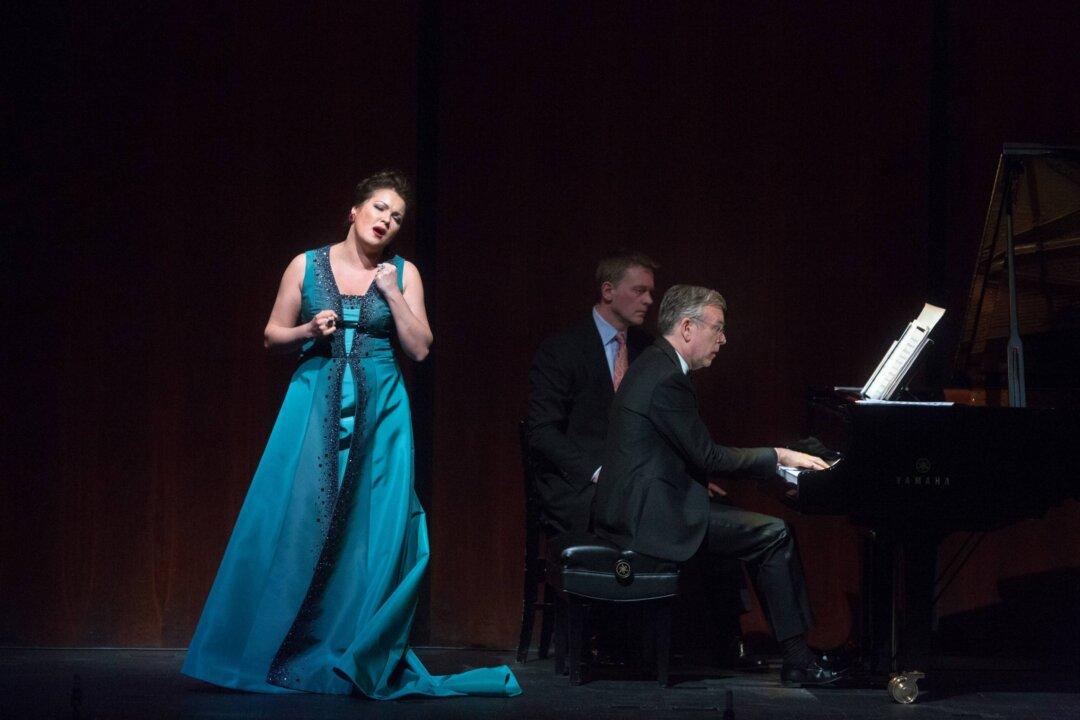NEW YORK—The Metropolitan Opera presented the great Russian soprano Anna Netrebko in concert. The program was of Russian music, and the star, accompanied by the excellent pianist Malcolm Martineau, was in her element.
Netrebko appeared in the first half of the concert wearing a white gown with a jewel-studded headband. Unlike most concert singers, she was not rooted to one spot. Instead, she traversed the stage and her hands expressively conveyed the emotions in each piece.
The stage contained two artificial cherry blossom trees, which fit in with the first song, Sergei Rachmaninoff’s “Before my window,” in which a cherry tree blossoms before the singer’s window. When Netrebko sang of lilacs, she turned her back to the audience and reached for the leaves.







